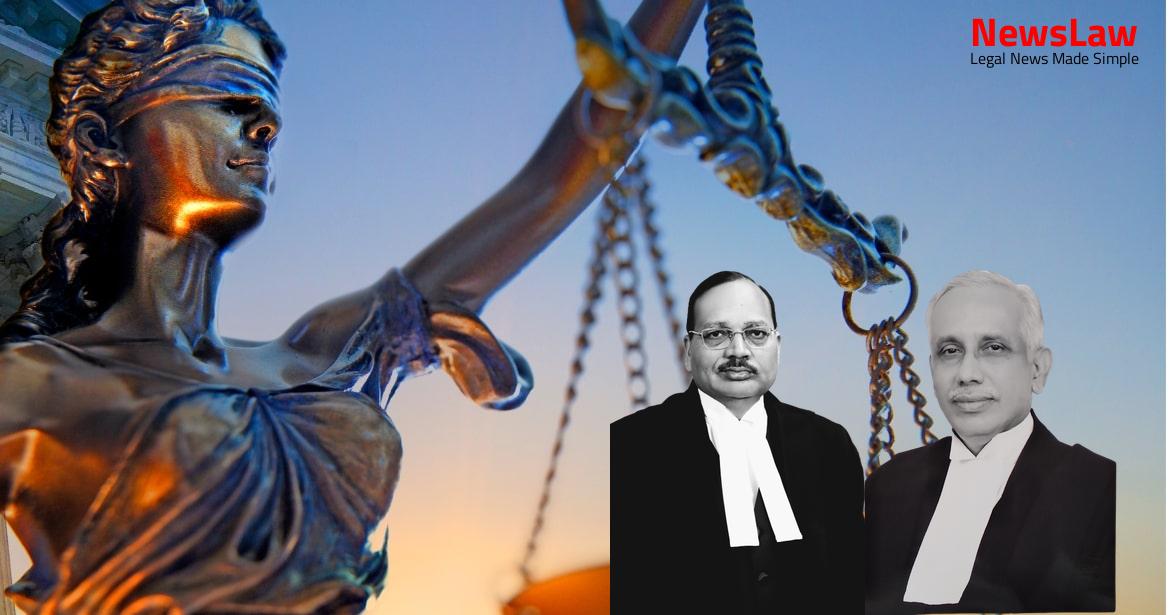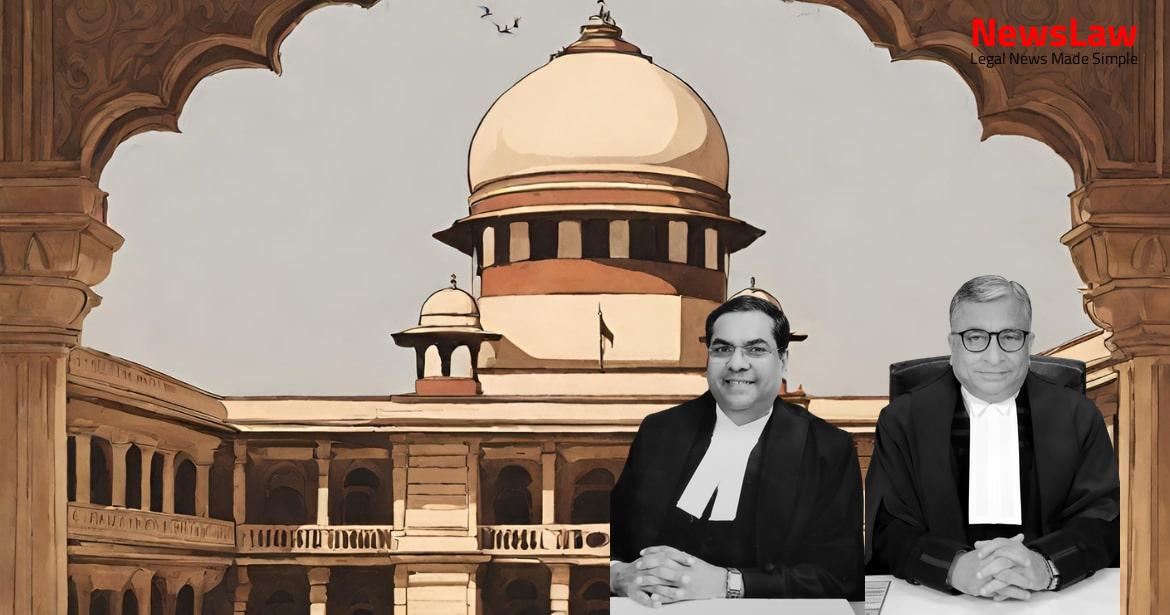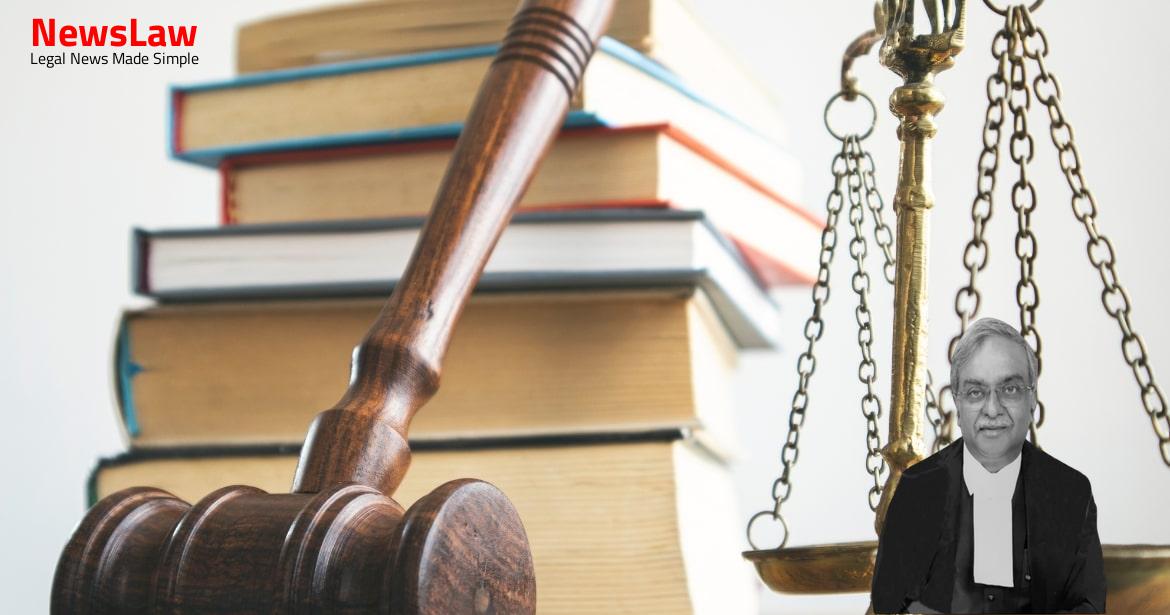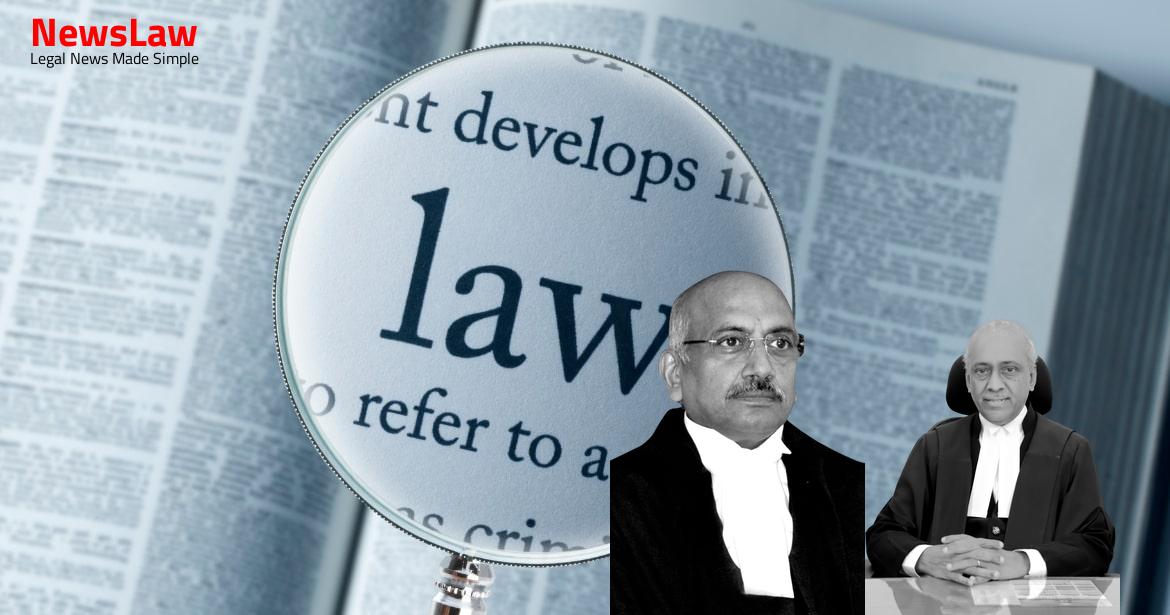Delve into the depths of a robbery case where the court’s legal analysis played a crucial role in determining the outcome. The meticulous review of evidence, scrutiny of witness testimonies, and considerations of factors such as delay in FIR registration and the accused’s mental state highlight the intricate nature of legal proceedings. Follow the journey of how the court’s analysis unfolded in this fascinating case.
Facts
- The prosecution examined twelve witnesses during the trial.
- The victim-complainant was assaulted by three boys who were armed with a knife and revolver.
- The three boys confessed to robbing the complainant.
- Police apprehended the three boys during routine checking of buses and recovered a prohibited knife from the appellant and his co-accused.
- The boys refused to undergo a Test Identification Parade.
- The complainant reported the incident to the police after being extorted of around Rs 30,000 by the boys.
- The appellant and his co-accused denied the allegations and claimed that the case was fabricated by the police after they failed to pay a bribe.
- The complaint was converted into an FIR, and evidence such as sketches of the knife, arrest memos, and recovered money and weapons were admitted.
- The appellant’s appeal against conviction and sentencing was turned down by the Delhi High Court.
- The accused’s refusal to participate in the TIP proceedings was considered highly incriminating
- All twelve prosecution witnesses were praised for their strong testimonies during cross-examination
- The trial Court found all three accused guilty of robbery with attempt to cause grievous hurt and sentenced them accordingly
- One co-accused was acquitted due to doubts in the complainant’s version
- The High Court reduced the appellant’s sentence to two years rigorous imprisonment under Section 394 of IPC
- No animosity or motive for false implication was found in the case of the present appellant
- The High Court noted the absence of contradictions in witnesses’ testimonies regarding the appellant’s role in the crime
- The delay in lodging the FIR was considered insignificant due to the circumstances of the late-night incident
- Use of a revolver was considered an improvement as it was not initially mentioned in the FIR
- Charges of robbery with grievous hurt or attempt to murder were dropped due to lack of specifics
- The High Court considered the appellant’s age at the time of the incident and concluded he was a major
- The absence of public witnesses was deemed normal given the situation of the case
- The appellant disputed the charge of robbery citing lack of proof beyond reasonable doubt by the prosecution
- The trial Court rejected the defence plea for lack of supporting material and dismissed the likelihood of false implication
Also Read: Analysis of Suppression of Information in Employment Selection: Legal Perspective
Arguments
- Learned counsel for the appellant brought up new arguments of juvenility and insanity after the High Court’s decision.
- The FIR was lodged three days after the incident despite the police station being nearby, raising doubts about the authenticity of the proceedings.
- The High Court had already reduced the sentence from seven to two years, showing leniency.
- The Additional Solicitor General supported the High Court’s judgment with evidence and witness testimonies.
- Evidence included an OPD card and the appellant’s mother’s testimony about his mental health issues and need to be chained at times.
- Mohd Anwar was claimed to be 15 years old at the time of the incident and receiving mental health treatment at a government hospital.
- The arguments presented by the Respondent were based on previous case law and legal principles.
- The Respondent claimed that the evidence presented by the Petitioner was insufficient to establish their case.
- The Respondent also argued that certain documents provided by the Petitioner were inadmissible as evidence.
- The Respondent highlighted inconsistencies in the Petitioner’s claims and sought to discredit their credibility.
- Overall, the Respondent made a strong defense, challenging the Petitioner’s assertions and presenting a cohesive legal argument.
Also Read: Analysis of Cheating and Forgery in Passport Case
Analysis
- The High Court’s reasons for disbelieving the appellant’s defenses are well reasoned and unimpeachable.
- The appellant’s mental health was questioned by the Court on 22.07.2020, but no substantial evidence or expert examination was provided.
- The complainant had no motive to falsely implicate the appellant.
- Appellate Courts should not routinely re-appreciate evidence in criminal cases.
- Refusal to participate in TIP proceedings and lack of immediate reasons indicate guilt.
- The delay in FIR registration claimed by the appellant was found to be unsubstantiated.
- Plea of mental disorder was not supported by evidence.
- Claims of unsoundness of mind or juvenility should be raised during trial and not belatedly.
- The appellant’s conduct after the crime shows an elevated level of mental intellect.
- The appellant’s responses during the Section 313 CrPC stage were not mechanical or laconic.
- To claim defence under Section 84 of IPC, the accused must show a serious mental disease affecting ability to distinguish right from wrong.
- Witness testimonies were found to be impeccable and corroborative of each other.
- Photocopies of OPD card and affidavits have little evidentiary value.
- The Courts below had concurrent findings on key aspects of the robbery, making a re-evaluation of evidence unnecessary.
- Robbery with hurt was established through testimonies and other evidence.
- The appellant who had been granted bail by the Court is untraceable and not residing at the claimed address for eight years.
- The appellant’s own counsel has not received any instructions from the client in the past ten years.
- The plea of mental illness is considered a fabricated story and lacks genuineness.
- Inability to establish juvenility or insanity, absence of doubt regarding guilt, and detailed reasons provided by the High Court support the decision.
- Twelve witnesses’ reliable testimony and the leniency shown in sentencing justify the lack of interference with the impugned order.
Also Read: Discrepancy in Date of Birth: Court’s Legal Analysis
Decision
- Bail bonds of the appellant are cancelled
- Respondent-State directed to take appellant into custody
- Appellant to serve the remainder of his sentence
- Appeal dismissed accordingly
Case Title: MOHD.ANWAR Vs. STATE (NCT OF DELHI) (2020 INSC 496)
Case Number: Crl.A. No.-001551-001551 / 2010



